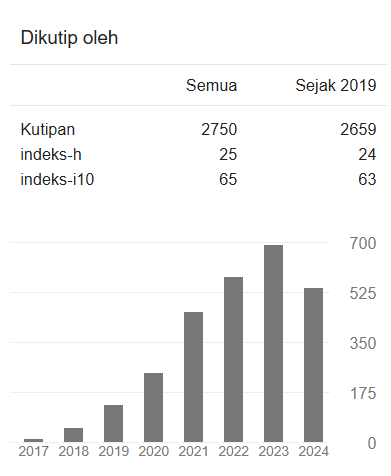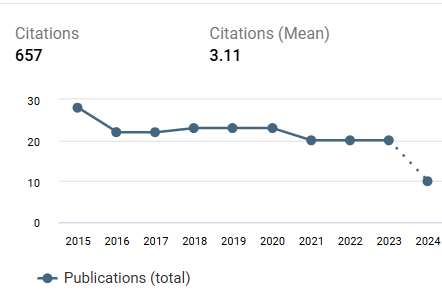Peningkatan Kemampuan Menulis Teks Prosedur Kompleks Melalui Model Pembelajaran STAD (Student Team Achievement Division) Pada Kelas X-IPA 3 SMAN Candipuro Lumajang
DOI:
https://doi.org/10.22219/jinop.v1i2.2604Abstract
ABSTRAK
Penelitian ini bertujuan untuk mengetahui hasil belajar siswa pada mata pelajaran bahasa Indoneisa Teks Prosedur Kompleks dengan menggunakan model pembelajaran STAD (Student Team Achievement Division). Penelitian ini dilaksanakan di SMAN Candipuro Lumajang dengan menggunakan pendekatan kuantitatif. Data penelitian ini berupa observasi aktivitas guru, aktivitas siswa dan kemampuan mengerjakan soal dalam bahasa Indonesia tentang Teks Prosedur Kompleks. Data Penelitian bersumber pada peserta didik kelas X-IPA 3 dan observer yang melaksanakan penelitian di sekolah tersebut. Hasil penelitian menunjukkan bahwa model pembelajaran STAD (Student Team Achievement Division) terlaksana dengan baik sesuai dengan sintak pembelajaran yang direncanakan. Kemampuan setiap siswa dalam belajar dan mengajarkan materi/pokok bahasan kepada temannya yang lain dalam kelompok dapat berlangsung dengan baik, sehingga temannya mampu untuk memahami dan memecahkan masalah bahasa Indonesia Teks Prosedur Kompleks dengan baik. Hal ini ditunjukkan dengan peningkatan prosentase belajar siswa dalam menulis teks prosedur kompleks dari 30% menjadi 83,3%.
Kata Kunci: Kemampuan menulis, teks prosedur kompleks, model pembelajaran STAD
Downloads
Downloads
Published
How to Cite
Issue
Section
License
Copyright Notice
Authors who publish with JINoP (Jurnal Inoasi Pembelajaran) agree to the following terms:
- For all articles published in the JINoP (Jurnal Inovasi Pembelajaran), copyright is retained by the authors. Authors give permission to the publisher to announce the work with conditions. When the manuscript is accepted for publication, the authors agree to the automatic transfer of the publishing right to the publisher.
- Authors retain copyright and grant the journal the right of first publication with the work simultaneously licensed under a Creative Commons Attribution 4.0 International License. that allows others to share the work with an acknowledgment of the work's authorship and initial publication in this journal.
- Authors are able to enter into separate, additional contractual arrangements for the non-exclusive distribution of the journal's published version of the work (e.g., post it to an institutional repository or publish it in a book), with an acknowledgment of its initial publication in this journal.
- Authors are permitted and encouraged to post their work online (e.g., in institutional repositories or on their website) prior to and during the submission process, as it can lead to productive exchanges, as well as earlier and greater citation of published work (See The Effect of Open Access).








